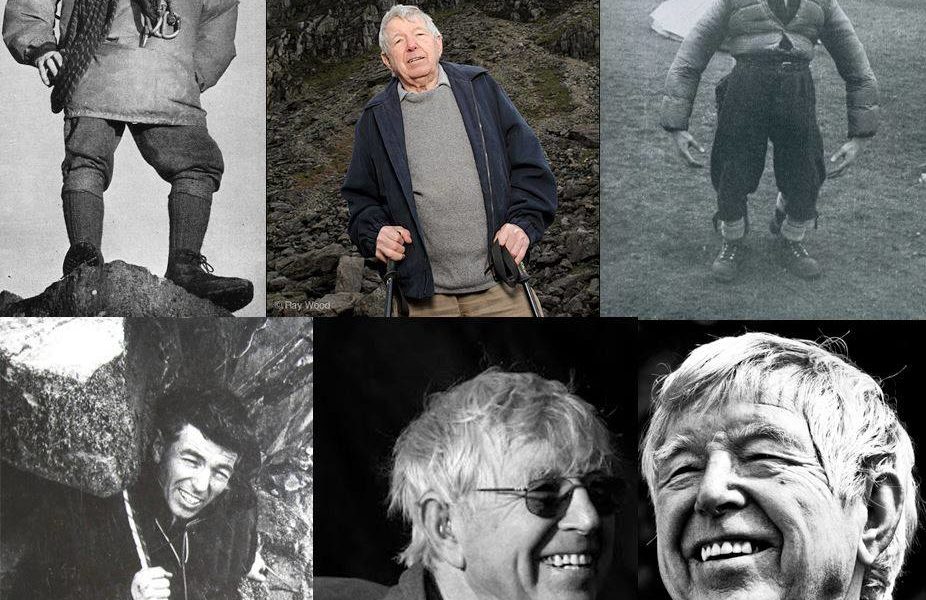With the death of Joe Brown on April 15 at the age of 89, the British climbing community has lost one of its most influential members, a pioneering rock climber and mountaineer whose influence in shaping the sport cannot be overestimated. Famous for making the first ascent of Kangchenjunga, the third highest mountain in the world and the only 8000er to be first climbed by a British team, it is his legacy of iconic rock climbs for which he will be best remembered.
The most prominent of a generation of climbers to emerge in the post-war era, Brown personified the new wave of working-class men and women who for the first time had the time and means to travel and climb. Following a disadvantaged upbringing in Manchester he trained as a plumber and odd jobs man, spending his weekends establishing rock climbs on the crags of the Peak District and North Wales, reshaping what was thought possible on rock. Many of his routes from this period define the term classic, with Cenotaph Corner, Vector, Valkyrie and The Unconquerables a short selection from an extremely long list.
Following a successful trip to the Alps where a fast ascent of the Dru was made and the establishment of a much-admired route on the Blatiere, he joined the successful trip to Kangchenjunga. Adventurous trips further afield continued, including new routes on the Trango Tower in Pakistan, the jungle-clad tepuis of Venezuela and the sandstone of the Wadi Rum. His early life and climbing career are retold in his autobiography The Hard Years, a seminal text which remains essential reading today. A true pioneer, he continued to make exploratory climbing trips to establish new rock climbs in Morocco until late in his life.
The outdoor shop Joe Brown shops, a fixture of Llanberis high street since the 1960s, remain open to this day. Brown received a CBE for services to rock climbing and mountaineering in 2011. He is survived by his wife Valerie and daughters Helen and Zoe.
Main image courtesy of the Joe Brown Shops





